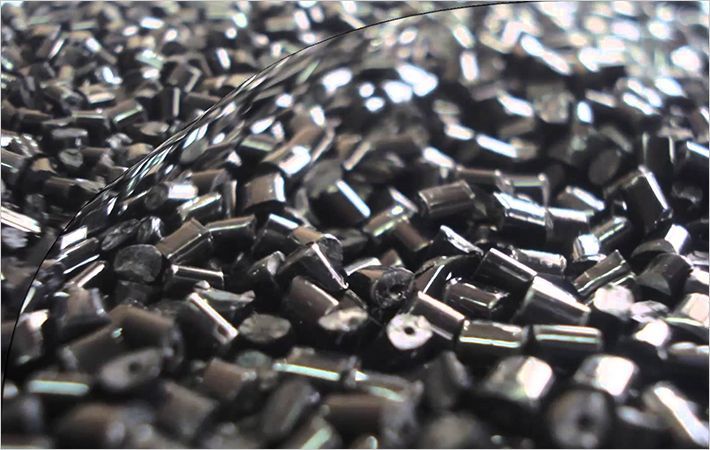Evonik, a speciality chemicals company from Germany, is planning to facilitate bulk production of hybrid polymer systems for the composites business.
Composites are made of extremely strong fibres embedded in a polymer plastic. The polymer primarily determines the composite processing. Hybrid polymer systems combine good processability of thermoplastic polymers and good mechanical properties of thermosetting plastics.Evonik, a speciality chemicals company from Germany, is planning to facilitate bulk production of hybrid polymer systems for the composites business.#
First hybrid polymer systems are expected to be ready for the market in 2018. The company is aiming for sales in the lower triple-digit million € range in the composites market in the medium term. For the market of carbon fibre-reinforced plastics alone, CCeV, a network of companies and research institutes in the fibre composites field, is expecting stabile annual growth of an average of 9 per cent by 2020, Evonik said in a press release.
Chief Innovation Officer Ulrich Küsthardt said, “Our technology will help to significantly reduce manufacturing costs for composites. We want to contribute to leading the way to bulk production of composites. Evonik that already offers numerous innovative products for composites wants to continue strengthening its position in this growth market.”
Composites are a key technology for lightweight design because of their ability to combine very good mechanical properties and low weight. Their processing properties are mainly determined by the polymer. Thermosetting plastics have very good mechanical properties but do require longer processing times compared to thermoplastic materials. But then again, thermoplastic polymers are easy to process, quick to reshape and to recycle, however, they rarely demonstrate the excellent mechanical properties of thermosetting plastics.
Evonik produced the hybrid polymers in cooperation with the Karlsruhe Institute of Technology. They were able to crosslink without using catalysts in a completely reversible process. Heating causes de-crosslinking and allows the system to be reshaped. During the cooling phase, the crosslink is created again and its shape becomes stabile.
Sandra Reemers, head of Evonik’s Composites Project House said, “We’re cooperating closely with suppliers of semi-finished products, plant producers, and processing companies of fibre-reinforced plastics to develop appropriate processing chains for our hybrid polymers. We aim at offering system solutions that enable an efficient production process for semi-finished products as well as final parts.” (GK)
Fibre2fashion News Desk - India

